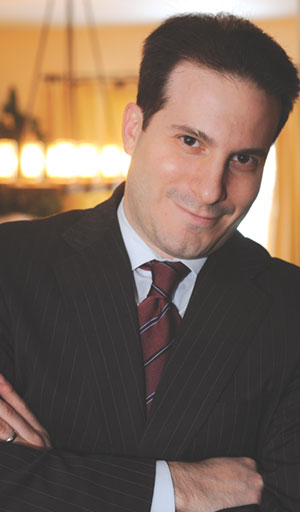A Federal Court judge has rejected a government attempt to roll back overtime and travel allowances awarded to federal lawyers during arbitration in late 2009.

The Treasury Board of Canada had argued for a judicial review of the arbitral award on the grounds that it violated the Public Service Labour Relations Act and the Expenditure Restraint Act, but Federal Court Justice John O’Keefe found the award was reasonable.
He also dismissed a claim by the Association of Justice Counsel, the body that represents 2,500 federal lawyers, that the allowances should have come into force earlier.
Association president Marco Mendicino says he hopes the ruling brings an end to the uncertainty surrounding the arbitration award issued by a Public Service Labour Relations Board arbitrator on Oct. 23, 2009.
The agreement allowed lawyers in two of the unit’s lower classifications to claim overtime when they worked more than 37.5 hours per week averaged over a four-week period or for any hours worked on a day of rest.
The award also allowed for compensation for travel time. The government dropped further claims related to robe costs and meal allowances before the court heard the matter.
“We’re obviously pleased to have some resolution,” Mendicino says. “It’s recognition of the fact that our people work long hours, that our positions are not 37.5 hours per week, and it’s an affirmation of the arbitration board finding that this is a fair way to compensate for excessive hours.
It is really time to put this issue to rest so that our members and management and the government can move on and start to refine the system so that it works for all parties. It also really stops them from being able to carry out any kind of a clawback.”
Mendicino was angered last summer when a Treasury Board memo to lawyers covered by the agreement suggested the government could claw back overtime and travel allowances that had already been paid out since the agreement came into force in February 2010 if its Federal Court application was successful.
“We thought that was an egregious step, which was designed to discourage our members from making any claims,” Mendicino says.
Treasury Board had nothing to say about the judgment last week except to note that the government is reviewing it. But when the memo became public last summer, spokesman Pierre-Alain Bujold denied Mendicino’s claim to
Law Times.
“As has been done in similar cases, the government sent a letter to members covered by the award to inform them of the potential implications of the court’s decision should it rule that the award should not have been given,” he said.
The association was certified as the bargaining unit for the federal lawyers in 2006 following the passage of legislation that allowed Department of Justice counsel to bargain collectively for the first time.
The lawyers perform a variety of duties across various government departments and agencies, including acting in courts and tribunals and assisting with the drafting of legislation.
Treasury Board asked to refer the matter for arbitration in September 2008 after failing to come to an agreement with the association. In the time between the referral and the beginning of the arbitration process, Parliament passed the Expenditure Restraint Act aiming to limit the federal government’s salary costs.
In the case of the association, the arbitration board found the act limited its power to rule on salary increases and performance pay and prohibited new forms of additional remuneration.
In the judicial review application, counsel for the attorney general of Canada argued the paid overtime went against the spirit of the act because it potentially increased government expenditures on employment.
They also argued it’s rare for lawyers of any kind to receive overtime pay and that workplace disruption could ensue as managers struggle to assess the reasonableness of an overtime claim.
But O’Keefe sided with the association, which said there was no evidence that overtime pay would be unworkable. It also argued its members earn less than comparable lawyers.
“Stating that private sector lawyers, or those in the public sector employed at the provincial level, do not receive overtime pay may not be a fair comparison as those lawyers are often paid higher wages,” O Keefe wrote.
In a separate Ontario Superior Court action, the association has launched a constitutional challenge of the act. It alleges the legislation interfered with its right to bargain collectively.
“Federal lawyers entered into collective bargaining with the reasonable expectation that we’d be able to address historic wage gaps between ourselves and comparators who work for the provincial Crown,” Mendicino says.
“It’s impossible for federal lawyers to negotiate in good faith if we are constantly facing the prospect of legislation that predetermines the outcome.”
A Superior Court judge who heard the case last month has reserved judgment.
For more on this story, see
"Feds battle lawyers over robes" and
"'Perfect storm' brewing in Crowns' court battle against feds."

 The Treasury Board of Canada had argued for a judicial review of the arbitral award on the grounds that it violated the Public Service Labour Relations Act and the Expenditure Restraint Act, but Federal Court Justice John O’Keefe found the award was reasonable.
The Treasury Board of Canada had argued for a judicial review of the arbitral award on the grounds that it violated the Public Service Labour Relations Act and the Expenditure Restraint Act, but Federal Court Justice John O’Keefe found the award was reasonable.